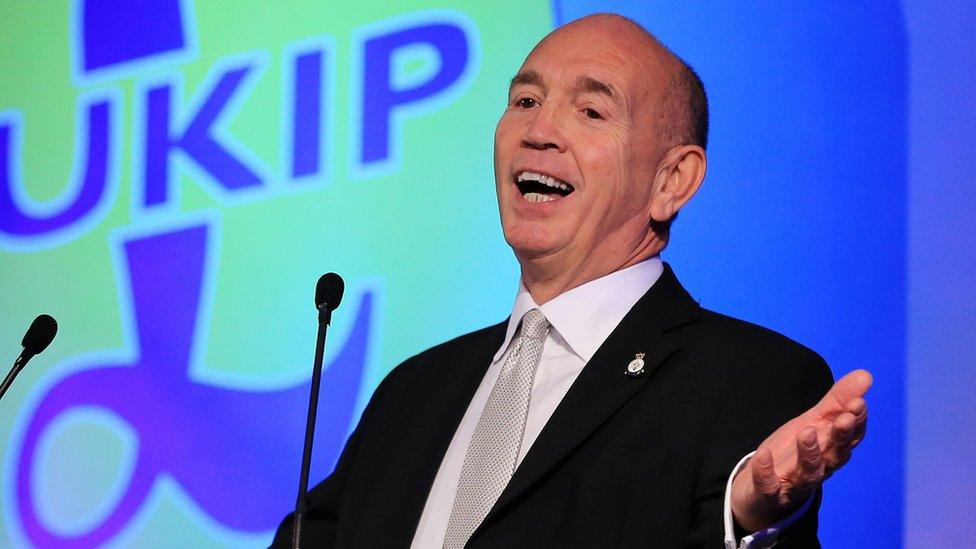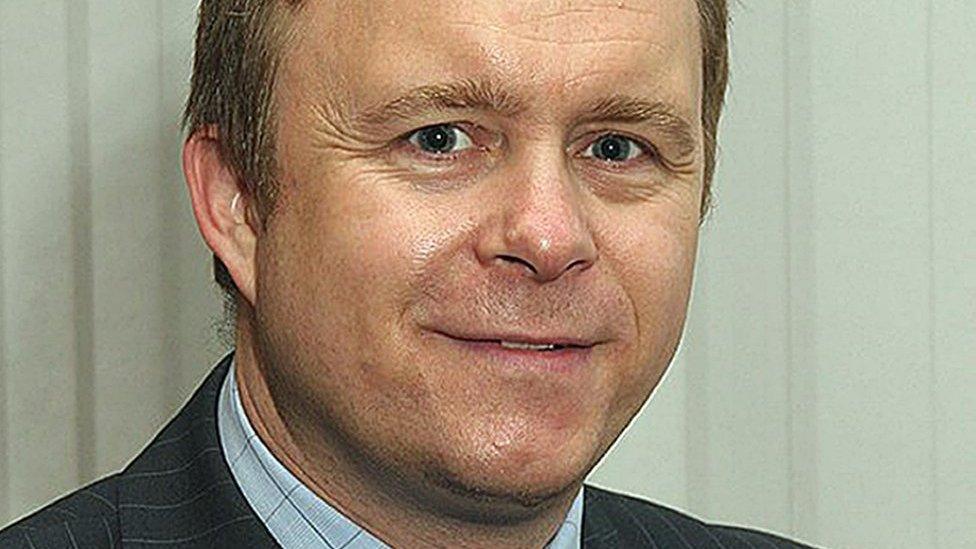Council elections attracted most voter fraud reports
- Published

English council elections attracted the most electoral fraud reports last year, nearly twice as many as the EU referendum, UK police data shows.
Of the 260 complaints made to police in 2016, 121 were about local government elections and 66 about the referendum.
The number of voter fraud reports rose - particularly allegations of people voting under someone else's name.
West Yorkshire Police received the most electoral fraud reports - 49 - while the Metropolitan Police received 30.
The Electoral Commission report identified only two local authority areas with more than seven allegations of fraud - Bradford and Kirklees, both in West Yorkshire.
The report noted that both areas had increased measures in place to tackle fraud.
While 5.3 million votes were cast in last year's local elections, 33.6 million were cast in the EU referendum.
The Electoral Commission said evidence suggested most alleged electoral fraud cases related to local government elections rather than elections to the UK Parliament or other legislative bodies.
Ward elections
One of the reasons for this was that "the margin of victory for ward elections is often relatively small" so it was easier to influence the outcome, it said.
Reports of "personation" in polling stations - votes cast in someone else's name - increased from 21 in 2014 to 44 in 2016.
Examples included a man in East Ayrshire who, during the EU referendum, turned up at a polling station and voted under his friend's name before returning later in the day to vote again as himself.
He raised suspicions, the report says, as "he was very tall and wore distinctive clothing" and was challenged.
He was able to prove his identity, but the case was referred to the police and he later pleaded guilty in court and was given a "community payback order" of 300 hours.
Another EU referendum voter, in Cheshire West and Chester, voted twice - once using his mother's polling card - but was given only a police caution as he did not realise it was a crime.
And another, in Oxford, voted under the name of the person registered to do so at his old address. He was also given a caution.
In a separate case, an election agent for the Conservatives was cautioned for forging signatures on eight candidate nomination forms in the Preston City Council area.
And, in Derbyshire, Conservative Richard Smalley was jailed for two months - having provided a false address to stand as a councillor on Derby City Council.
No evidence
The Electoral Commission compiled its report based on figures supplied by police forces across the UK.
Most of the complaints resulted in no action by police - some because they turned out not to have been an offence or there was not enough evidence to identify an offender.
Many cases were resolved locally with informal advice.
Two cases were successfully prosecuted, while in six others police cautions were accepted.
The commission said there was "currently no evidence of any large-scale cases of proven electoral fraud relating to the polls held during 2016" but the data alone did not accurately reflect the problem because many cases would go unreported.
But it noted that reports of electoral registration offences had reduced since 2010, when they had accounted for 28% of electoral fraud cases.
Electoral Commission director of electoral administration Ailsa Irvine said: "The findings from our report show that significant sentences will be imposed when electoral law is broken, and that those responsible for electoral fraud can face jail."
- Published23 March 2017

- Published23 August 2016
